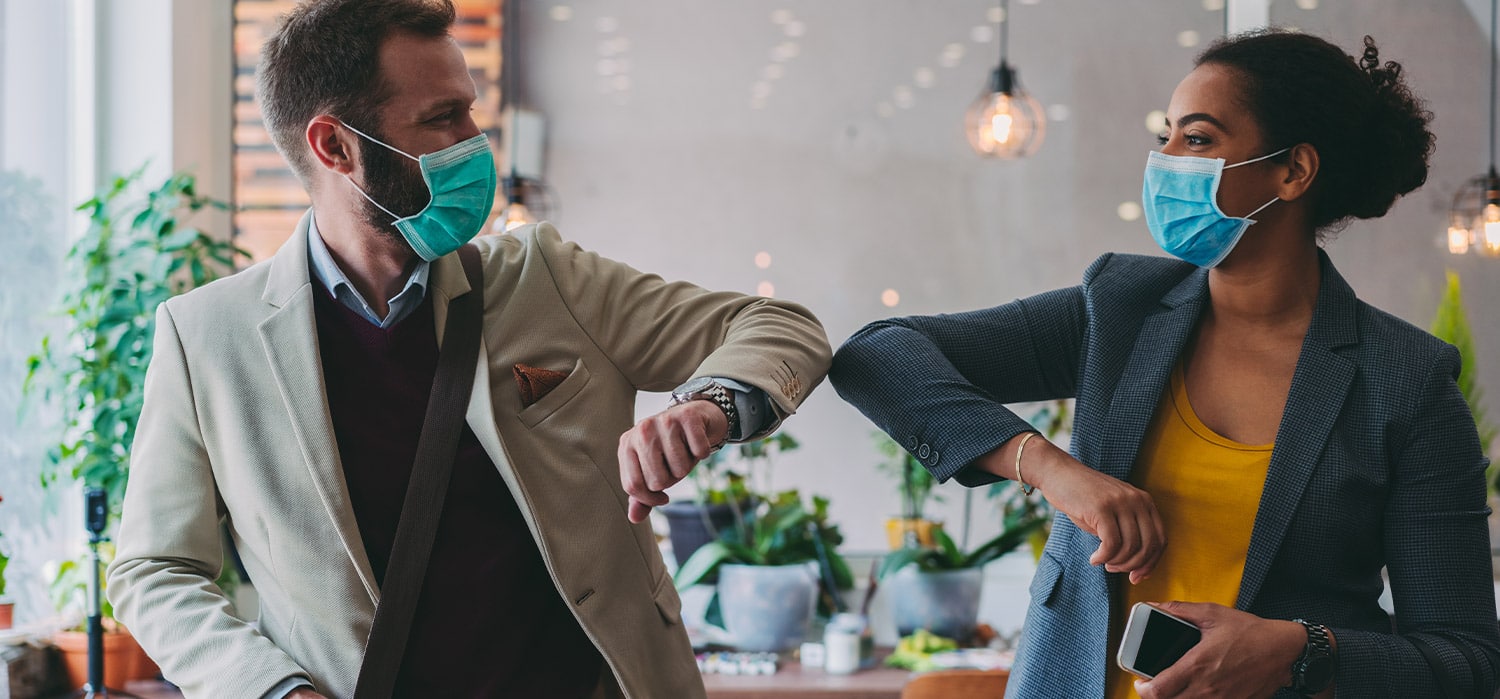“Mask mouth” is a stinky side effect of wearing a mask for hours at a time. Masks can reduce the risk of transmitting infectious diseases, of course, but wearing them for long periods can give you bad breath. Long-tem mask wearing can also lead to other issues, such as tooth decay, cavities, and inflamed gums.
Why Does Mask Mouth Happen?
Wearing a mask for hours on end can change the way you breathe. Because it covers both your nose and your mouth, it may feel like the mask partially closes off airflow to your nose. To feel like you are getting more air, you may begin to breathe through your mouth.
The human body was meant to breathe primarily through the nose, however, and breathing through your mouth can lead to dry mouth. Mouth breathing dries up saliva, which allows bacteria to build up inside your mouth and on the surfaces of your teeth. The decrease of saliva and buildup of bacteria leads to bad breath and cavities.
Saliva is important to the health of your mouth, as it moistens tissues in your oral cavity. Saliva also rinses away the sugar from food and the bacteria that feed on sugar to cause tooth decay. Without saliva, bacteria thrive in the presence of sugar; they breed in the sugar-rich environment and cause tooth decay. Drinking water can help reduce dry mouth and rinse away bacteria and sugar, but we tend to drink less water when we wear a mask.
Wearing a mask also forces you to breathe in some of the air you exhaled, which means you are breathing in some of the bacteria you just expelled. This can cause a buildup of bacteria in your mouth.
Fortunately, you can take steps to solve “mask mouth,” and to avoid the dry mouth and increased risk for cavities that come with it.
How to Solve Mask Mouth
Stay hydrated
Drinking plenty of fluids when you are not wearing a mask keeps your body hydrated, which can help you avoid mask mouth. Be sure to choose water – coffee and other caffeinated beverages can make you urinate more frequently, and sugar-sweetened beverages give the bacteria in your mouth more sugar to eat.
Eat healthy food
Avoid sugary food, of course, but also steer away from processed food – many processed foods contain hidden sugars and other ingredients that contribute to dry mouth, tooth decay, and bad breath. Eating meals from healthy, whole foods helps you avoid hidden sugar and improves your overall health.
Avoid eating smelly foods
Take it easy on food containing garlic, fish, eggs, onions – many of these foods contribute to bad breath by releasing sulfides. As you probably know, sulfur smells a lot like rotten eggs. The sulfide in onions, garlic, and coffee can stay in your bloodstream up to 72 hours after consumption, which means they can give you mask mouth for days after you eat them.
Clean your mask
Every time you exhale, you expel bacteria, sulfides, and bad breath into your mask; doing this for several hours can make your mask dirty and stinky. Worse still, you suck much of that bacteria, sulfides, and bad breath back in when you inhale, which just makes mask mouth even worse. Wash your mask regularly, or change your disposable mask frequently (don’t forget to cut the ear loops before throwing it away.)
Maintain oral hygiene
Regular brushing and flossing removes bacteria and odor-causing food from your teeth and mouth.
See your dentist regularly
Regular dental visits give your dentist an opportunity to detect signs of tooth decay and other dental problems that can cause mask mouth. Your dentist can also give you more tips on how to prevent bad breath from wearing a mask.
Schedule an appointment with Triangle Dentistry today for relief from mask mouth tomorrow.
Triangle Dentistry, located in Raleigh, NC, provides a state-of-the-art facility that offers exceptional general dental and specialty services guided by empathy of a patient’s needs and desires. Services range from dental crowns to veneers and whitening procedures. For further information, questions, or to schedule an appointment, contact the office at (919) 847-6000
